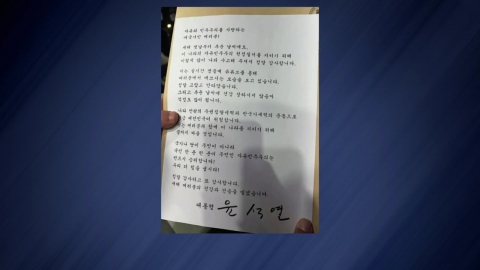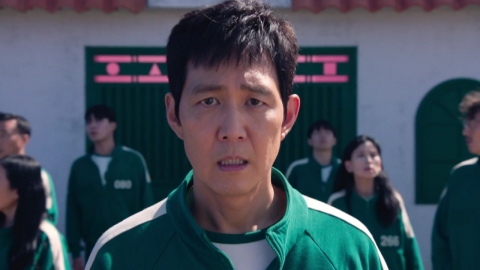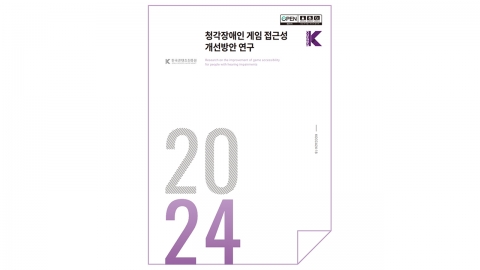■ Starring: Attorney Kim Sung-soo
* The text below may differ from the actual broadcast content, so please check the broadcast for more accurate information. Please specify [YTN News UP] when quoting.
[Anchor]
Let's take a look at the major incident with lawyer Kim Sung-soo. Please come in. We told you earlier in the report, but let's start with the case of Park Dae-sung. In the first place, I said I was drunk because I drank 4 bottles of soju, but now there is a false situation.
[Kim Sung-soo]
That's right. At the time of Park Dae-sung's arrest, it was reported that he made a statement to the effect that he couldn't remember because he drank 4 bottles of soju. But now, the police say they raided the store. And as a result of the search and seizure, it is true that four bottles were placed on the table, but since this situation was found that two bottles appeared to have been drunk and the other two did not recover, some say that the statement was unreliable to claim such a reduction in drunkenness.
[Anchor]
I think it's an important part of this case, but will there be a difference in the level of punishment?
[Kim Sung-soo]
Article 10 of the Criminal Code explicitly stipulates that punishment can be reduced in case of mental and physical loss or weakness. So, in the case of mental and physical loss, what can be seen as the purpose is that if you do not have the ability to discriminate or make a decision, there is a rule that you will not be punished for an act in such a case, and isn't there a case where this ability itself is weak? In that case, the sentence can be reduced. However, if the reason why alcohol reduction was an issue in the past is that it is usually viewed as a mental and physical weakness rather than mental and physical loss, but if the case of mental and physical weakness is recognized, it is necessary to reduce this until 2018 and until the law is revised. But now, the law has been revised and the sentence can be reduced. Therefore, even if the state of intoxication is recognized and considered mental and physical weakness, the court can decide whether to reduce it, so we need to see if this can be an issue, and isn't there a sentencing standard for murder?
If you look at this sentencing standard table, there is such content at the bottom. In this regard, in the case of mental and physical weakness, it can be reviewed as a mitigation factor, but even if it is a mitigation factor, it is not a mitigation factor if you can see that you can act aggressively when you drink.
So, we need to understand the situation about those parts, but if there was such a part, even if it was drunk, it may not be included as a mitigation factor, so the facts should be revealed a little more about this part.
[Anchor]
Park Dae-sung's statement is also changing little by little. Let's take a brief look at the prosecution sent to the prosecution last Friday.
[Anchor]
It changed from "I can't remember because I'm drunk" to "I can't remember" little by little. How should I look at this?
[Kim Sung-soo]
It didn't come out in the video now, but I said, "Do you remember when you were sent to the prosecution?" and I said, "I remember it little by little." As a result, it can be seen that there are some differences from previously reported statements of facts. So there are many opinions on this, but if you don't remember when you were investigated right after the crime, but over time there are some memories that could have been made of various CCTV videos or something like this. If you say you can't remember the whole part, this sentence could be punished by CCTV or other evidence, but it may be better to say that you remember something and make a statement that is in your favor. As there are talks about whether it is a strategic choice or not, I think the investigative agency should distinguish the credibility of how to view it.
[Anchor]
Park Dae-sung made contact with several people before and after the crime, and the people who came into contact said that they were able to talk and that they were not intoxicated. What do you think?
[Kim Sung-soo]
In the three hours before the crime, there were five people who appeared to have contacted Park Dae-sung within a 2km radius.
But most of what these people say is that Park Dae-sung was drunk, but he was able to talk, and when he was arrested, a citizen reported and pressed and held Park Dae-sung. However, I remember that Park Dae-sung kicked him about 3 to 5 times, and since he kicked him very accurately at the time, I think it is difficult to see him as intoxicated, so I think this is an important fact in determining whether the investigation agency was also intoxicated.
[Anchor]
We're showing you the CCTV footage.It would be a little staggered if Ma was drunk, but he has not seen anything like that at all, so I think this CCTV image can be sufficiently confirmed by evidence. Before the crime, it was 20 minutes ago. It was also revealed that the police personally visited Park Dae-sung's restaurant and interviewed him, but he reported that his brother was concerned about the extreme choice.
[Kim Sung-soo]
That's right. We had to find out the facts before and after the crime, so we were trying to find out the facts in various ways, and in the process, it was revealed that Park Dae-sung had a meeting with the police 20 minutes before the crime, which drew attention. As you said, Park Dae-sung's brother reported to the police that Park Dae-sung would make an extreme choice. So the police came out near the store with Park Dae-sung, who went to Park Dae-sung's store and was drinking, and when I talked to him, he said he was okay and there was no sign of extreme choice. So I withdrew, and since the accident occurred 20 minutes later, some say that the facts can be reviewed in looking at the overall part.
[Anchor]
In the meantime, quite a few circumstances have been revealed that Park Dae-sung's crime is a planned crime.
[Kim Sung-soo]
First of all, the investigative agency seems to be considering it as a planned crime, but didn't Park Dae-sung take the weapon from the store and leave? And it seems that he didn't carry this weapon, but he seemed to hide it in his waist. And right after he committed the crime, he threw away the weapon again. Therefore, I think that the investigative agency will reveal the facts of this part and open the trial to this part for now because there is a part that sees whether these parts were intentionally committed to attack someone, and if it is a planned crime, there may be a difference in the level of punishment.
[Anchor]
Some pointed out that he was suspected of being a psychopath even though he was caught laughing on CCTV after the crime. I'm going to do an examination, right? [Kim Sung-soo] There are rumors that psychopathic tests are expected to be carried out because there are continuous stories of such attacks on victims who have not committed the crime at all and who seem to be smiling, and the actual investigative agency is likely to conduct psychopath tests. Isn't there an electronic anklet and a location tracking device when the sentence is sentenced? You will be asked to attach this part together, and this can be considered in this regard, such as psychopaths and the risk of recidivism. As a result, it is expected that the test will be conducted.
[Anchor]
So what will be the biggest issues in this case of Park Dae-sung in the future?
[Kim Sung-soo]
First of all, it is clear that the damage has occurred, so this will be the issue of which type of murder falls under and if there is a mitigation or weighting factor in that type. So, to explain the sentencing criteria, first of all, the crime of murder is divided into five types. Therefore, there are five categories: motive murder, ordinary motive murder, critical motive murder, murder combined with serious crime, and extreme contempt of life. According to the description of the type of critical motive murder, killing one person by indiscriminate killing to attack an unspecified number of people constitutes critical motive murder.
As a result, there are speculations that there is a high possibility of going to a murder with a motive of criticism, and in the case of a murder with a motive of criticism, there are generally 15 to 20 years, 10 to 16 years for a reason of reduction, 18 years for a reason of aggravation, or even weapons. Therefore, in the case of aggravated reasons, planned crimes can be aggravated reasons, and in the case of reduction reasons, serious reflection and mental and physical weakness can be issues, so I think the facts can eventually argue about whether there is an element in this part and the court will judge it according to the facts.
[Anchor] I think we need to watch
. Let's move on to the next case. Similarly, it was a very terrible incident, and an intellectually disabled employee who worked at a chicken restaurant was severely abused. The brother who ran the chicken restaurant was the perpetrator. What kind of incident is it?
[Kim Sung-soo]
This incident, which appears to have occurred from July 2022 to November 2022. A brother who runs a restaurant in Gangwon-do has committed a number of harmful acts against a victim with intellectual disabilities who got a job as a kitchen assistant, and to illustrate the abuse, he priced the body level with a 26cm spanner, causing great damage and also with a hammer. So it caused six weeks of damage to the pre-treatment. And because he ran away from the restaurant, he poured hot water on his arm or threw a hot container to the victim, causing another three weeks of second-degree burns. So with various crimes in this regard, because there are so many of these acts, each of them is attached.
So, the trial was carried out on various charges, and in this case, one brother was sentenced to four years in prison and the other was sentenced to one year in prison, and it seems that the brothers taught the other employee to cause such injuries. Therefore, even in the case of employees, it is necessary to see if there are any injuries with the teacher, but the news is that they have been sentenced to a one-year suspended prison term on special injury charges.
[Anchor]
Looking at it, the perpetrators alone had more than five charges. There is a special injury you mentioned, so please explain it. [Kim Sung-soo] In the case of special injuries, this special attachment can be considered a dangerous object or a joint injury. So, it's much more dangerous and serious than normal injuries. As I said, there were cases where special injuries caused injuries over a few weeks of pre-treatment by paying a price with a very dangerous object, and there were also cases where hot water was poured to cause burns over a few weeks of pre-treatment, right? That's why it seems that there is a special injury, and in the case of a special injury teacher, someone was asked to do a special injury. That's why, as I said, I wonder if the employee was the subject of the teacher at the time, and there are fraudulent blackmail and special thefts. In the case of fraudulent blackmail, the brothers made the employee write a loan certificate and seal it saying that they would pay 160 million won if they ran away next time. And then, there was a charge of stealing about 700,000 won from the employee's mother's house, saying that he had to receive the money, and in the case of blackmail, there were these parts because it was said that 160 million won should be given.
In addition, there was a special coercion part, but it was a case where a special force was made because of a special dangerous object or a joint coercion, and there were many crimes, so it was said that it should be punished seriously.
[Anchor]
Severe abuse was made, but as you said, in the first trial, he was sentenced to four years in prison and one year in prison. Isn't the sentence too small?
[Kim Sung-soo]
The victim had a very long period of damage and was the subject of several crimes, right? As a result, there seems to be an opinion that the amount of sentencing is small compared to the damage suffered by the victim. However, the issue of our criminal law continues to be that the amount of damage suffered by the victims is much smaller than the damage suffered by the victims, and this makes the case a little more different, especially when multiple crimes are committed, and our criminal law adopts weightingism, not morbidity. In the case of a prison sentence, if you say that the same kind of sentence will be sentenced, in this case, special injuries and special coercion are all guilty of one crime. Then, if one case is punished, it can be higher than four years in prison if it is accumulated, including six months in prison and six months in prison. Instead of judging it like that, if there are other crimes based on the most serious crimes, it can be aggravated to the most serious crimes by up to half.
So if you say you did it as a sick leave in this regard, the person who committed more crimes will be punished more seriously. No matter how many crimes you have committed, if you are tried in one case, it will only be one of the most serious crimes times up to half, so this is a different judgment from the legal feelings these people feel. So, in that regard, it is said that sick leave should be adopted from the past, but there is still a sick leave now. However, in this case of imprisonment or fines, you can do it, but the part that we want to talk about is that in the case of imprisonment and in the case of Anglo-American law, this is really done. There is a part where the prison term comes out very high by stacking them all up like this, so there seems to be a saying that it is necessary to realize this.
[Anchor]
It looks like both sides will appeal, so how can we predict it?
[Kim Sung-soo]
First of all, if the prosecution also has a part that is less than the amount of sentence, I think it will be emphasized to the court as much as possible to emphasize that part and that punishment should be carried out more seriously. And if the facts are different from what they did, I think the defendants will try to prove that part as much as possible and try to be more innocent.
[Anchor]
Let's take a look at the last case. Two Filipino housekeepers who left their accommodation last month and went into hiding were caught in Busan, but they were illegally employed at the accommodation.
[Kim Sung-soo]
He was caught in Busan and seems to have been in charge of managing the property. So, regarding this part, I originally said that if I return by the 25th, I will be able to work as a domestic manager again without being held responsible for this part, but since I was arrested after 25 days, there are areas where I think the forced eviction will take place in the end, and in that regard, the Immigration Control Act specifies the subject of forced eviction. I think that will be reviewed.
[Anchor]
If you're forced to leave like this, it's the money you've earned so far. What happens to that? Can I take it with me?
[Kim Sung-soo]
If there is a rule to confiscate such money in that regard, it may be possible to confiscate that part, but when I look at the Immigration Control Act, there seems to be no separate rule for confiscation of that part, the money earned. Therefore, it seems that you can take that part of the money, but if you are forced to leave, you will have to bear some of the costs related to the eviction, so I think there will be some reduction in that part of the cost burden.
[Anchor]
It is presumed that there was a broker's approach to illegal employment, and there will be an investigation into this, right?
[Kim Sung-soo]
In the case of brokers, if you look at Article 94 of the Immigration Control Act, can't it be considered that they came in conditions? A visa was issued based on what kind of work it is doing, and if I want to do something other than this, I have to report this part and get permission to change it. However, there is a separate regulation that punishes the act of arranging or introducing people who have not been granted permission to change, so there are criminal penalties for these brokers, so I think the investigation agency will probably investigate them.
[Anchor]
Since the pilot project was implemented, there have been concerns about this unauthorized departure, but there have been complaints about low wages and treatment. It is said that this incident will lead to changes.
[Kim Sung-soo]
That's right. After this departure, the Seoul Metropolitan Government and the Ministry of Labor began reviewing why this problem occurred. And through the meeting, there was a story about what was wrong with it, but one of the parts that came out now is using the dormitory. But the dormitory had a curfew. Since there was a realistic curfew, the house managers felt a little uncomfortable about it, so there are answers to the effect that there will be no curfew in this regard, and there were also talks about the amount of salary, but now there are talks that there is a need for bi-weekly payments or weekly payments. Therefore, there are talks that they will review not only the salary system but also the weekly payment system and the bi-weekly payment system.
[Anchor]
The 10 p.m. curfew could be a violation of the Labor Standards Act.
[Kim Sung-soo]
According to the Labor Standards Act, Article 98 stipulates that the privacy of workers who use dormitories should not be violated when using dormitories. However, now that there is talk of whether this has been violated in reality, if there was an infringement of this part, I will improve this part because there is a violation of the law, which is the current situation.
[Anchor]
The period of stay was also limited to 7 months, but this period was also decided to be extended. Do you have any visa issues?
[Kim Sung-soo]
As far as I know, this visa can be extended up to three years because the visa is currently for employment. So, there are opinions that it is only going back after 7 months now, and that this kind of separation occurred because of this anxiety, so we will positively review the part that can be extended up to 3 years in this regard.
[Anchor]
I see. We've reviewed the details of major accident accidents. I was with lawyer Kim Sung-soo. Thank you for talking today.
※ 'Your report becomes news'
[Kakao Talk] YTN Search and Add Channel
[Phone] 02-398-8585
[Mail] social@ytn. co. kr
[Copyright holder (c) YTN Unauthorized reproduction, redistribution and use of AI data prohibited]
Society
More- "D-1 warrant due date." The Senior Civil Servant Corruption Investigations Unit is struggling...The President's "Legal Response"
- "With New Year's wishes..."Namsan Octagonal Pavilion Crowded with Citizens
- Court rejects President Yoon's objection to "executing arrest warrant"...Whether to re-execute or not
- [Breaking News] President Yoon said, "The court will not notify you of the rejection of the objection... I'm sorry."




![[Interview] Everything about "Omg 2" that director Hwang Dong-hyuk revealed...From the controversy over his acting skills to Sung Ki-hoon's contradiction,](https://image.ytn.co.kr/general/jpg/2025/0105/202501050800013506_h.jpg)
![[Interview] What Lee Jung-jae calls 'Squid Game 2'..."It's not a cheer for Sung Ki Hoon".](https://image.ytn.co.kr/general/jpg/2025/0105/202501050800088130_h.jpg)



